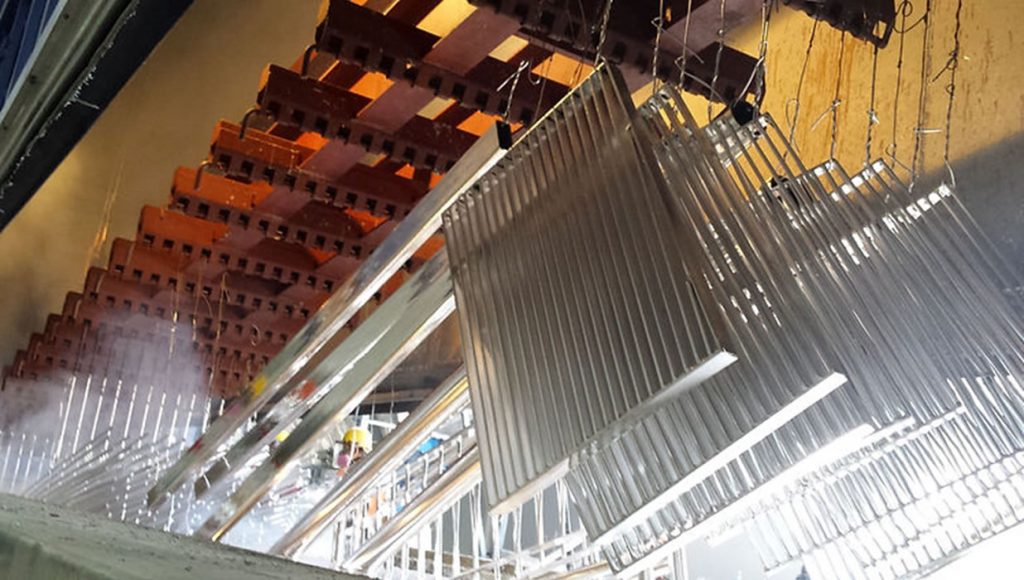You may encounter these two options when shopping for steel: galvanized and zinc-plated. Knowing the difference between the two is essential to getting the right quality for your project needs.
The main difference between the two is basically the thickness of the zinc coating. Hot-dip galvanising offers a thicker coating than mere zinc plating. Let’s get to know more about these metal processing below.
What is zinc coating?
A metal’s natural state is one of oxidation, which will cause the metal to corrode over time. To prevent corrosion, a protective barrier must be applied to the metal. The most common type of protection is a zinc coating.
Zinc has several properties that make it an ideal coating material: it is non-toxic, it does not corrode in the presence of other metals, it is relatively cheap and easy to apply, and it forms a thick barrier that protects the metal from corrosion.
There are several ways to apply a zinc coating; the most common is hot-dip galvanizing. Another standard method is electroplating, in which an electric current deposits a thin layer of zinc onto the metal.
Hot-dip galvanising
It is a process where zinc is applied to steel or iron to protect against rust. It works by forming a barrier that prevents oxygen and water from coming into contact with the metal. This process can be done through hot-dip galvanising or zinc plating.
Hot-dip galvanising is when the metal is dipped into a vat of molten zinc. The advantage of this method is that it provides a thicker coating that is more durable. It is also less expensive than electroplating. However, the downside is that it can be challenging to control the thickness of the coating, and the steel is at risk of being damaged if it stays in the zinc for too long.
Electroplating
Zinc plating is a form of electroplating. This is when an electrical current coats the metal with zinc. This method is more expensive than hot-dip galvanizing but provides a more consistent coating. It is also less likely to damage the steel. However, this process can expect to see zinc flake coating over time.
Benefits of using zinc on metals
There are many benefits to using a zinc coating on metals. It is an effective way to protect against corrosion, and it is also relatively cheap and easy to apply. Specifically, they can last many years and provide a durable barrier that protects the metal beneath from damage.
The protective zinc coating can also improve the appearance of metals and add a level of protection against wear and tear. Galvanized steel is one of the more popular products that your zinc layer for protection.
A zinc coating can provide long-lasting protection for the metal surface when appropriately applied. It is an integral part of making metals more corrosion resistant and can also improve the appearance and durability of the metal.
Why Zinc is the Most Commonly Used Metal for Corrosion Resistance
Zinc is the most commonly used metal for corrosion resistance because it is an effective way to protect metals from corrosion. It is relatively cheap and easy to apply, forming a thick barrier that protects the metal from damage.
Zinc coatings can last many years and provide a durable barrier that protects the metal beneath from damage.
Other metals, such as aluminium and stainless steel, also have corrosion resistance properties. However, zinc is the most commonly used metal because it is more affordable and easier to apply.
Aluminium is a lightweight metal that is commonly used in the construction of buildings and automobiles. It is also used in the manufacturing of cans and foil. Stainless steel is another type of metal that is resistant to corrosion. It contains chromium, which forms a thin oxide layer on the surface of the metal that protects it from further corrosion.
While these metals are more expensive than zinc, they provide excellent protection against corrosion.
Which one should you choose?
It depends on your needs. Hot-dip galvanising is the way to go if you need corrosion protection for added durability. Zinc-plated steel is better if you need a thinner coating for aesthetic reasons or to avoid changing the object’s dimensions. Whichever route you choose, make sure you work with a reputable company that has experience in zinc coating. Aside from molten zinc, there are also other types of metals that are corrosion resistant.

